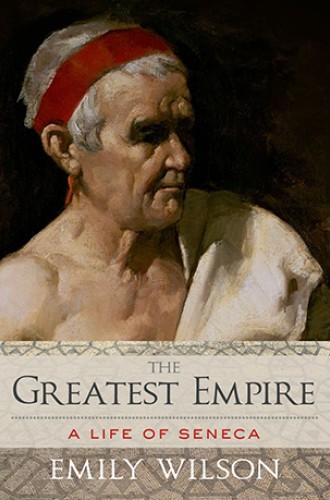The Greatest Empire, by Emily Wilson
Among world-historical dates few are of greater consequence than January 16, 27 BCE. On that date the Roman Senate gave the title of princeps to Gaius Octavianus (Caesar Augustus)—the adopted son of Julius Caesar. The declaration marked the final collapse of the ancient Roman Republic—a decline that had begun in 49 BCE when Julius Caesar crossed the Rubicon and established himself as dictator de facto over the affairs of state.
Lucius Annaeus Seneca, the subject of this sprightly biography by Emily Wilson, was born into this history, a narrative that begins in imperial Augustan splendor and descends into murder and madness in the reign of Nero. Seneca would become Nero’s early tutor and ultimately his victim.
Seneca was a provincial, born sometime between 4 and 1 BCE in Corduba in Hispania. He was named after his father, Seneca the Elder, a wealthy member of the Roman equestrian class, which Wilson characterizes as “lower-upper-class.” (Roman society had no middle class; a few were rich, a multitude were poor.) In about 5 CE Seneca the Younger was sent off to Rome to acquire the manners and education proper to his class. Plagued by ill health, probably asthma, he spent a long period, from 16 to 31 CE, in Egypt. Upon his return he attained the position of questor, the first step on the traditional Roman cursus honorum. Seneca’s subsequent career and literary works would be shaped by imperial politics and whim.



